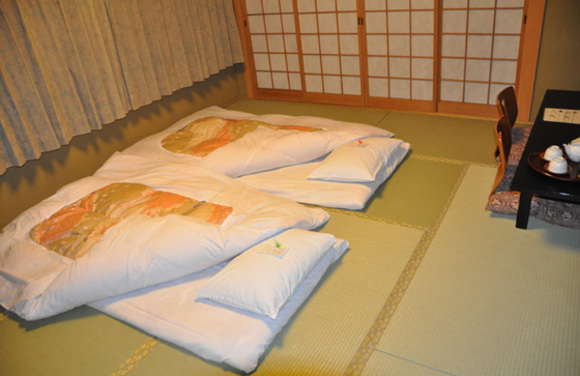People sleep on the floor for varying reasons. Some have therapeutic reasons while others have cultural concerns. Have you ever visited Japan? Japanese sleep on the floor using futon beds, their floor sleeping habits date back to centuries-ever since their existence. Japanese futon mattresses came into existence because of their small house spaces, and now have been claimed for giving a better night’s sleep.
Those practicing floor sleeping on traditional Japanese futons claim for refreshing mornings and good health. Yes, for Japanese this might even mean a cultural norm, while this trend is equally popular in western world and is being practiced with latest innovations of futon types. However, there’s one question that has taken the troll; sleeping on the floor is good or not?
The answer is simple; sleeping on the floor is good for you but depends on the preparation you make. There are studies that support sleeping on the ground as a healing therapy for back pain, but a solid statement confirming the study has not yet been found. In this article, we will discuss the same and give you some tips on making your futons comfortable for a better sleep.
Why Sleeping on Floor is good?
Sleeping on the floor depends on the health of the person initially. Whether sleeping on the floor is good or bad for you-the answer is both yes and no. Yes sleeping on an authentic futon mattress heals your back, puts your body and bones into proper alignment, and also is great for people sensitive to allergies. All these benefits of futons are effective if the person is in good health initially.
If you have joint problems and find it difficult to rise up from the ground, then futon bed is not suitable for you. If you suffer from such a condition then it’s recommended that you consult your physician before purchasing a high quality futon mattress. On the contrary if you healthy and want to transit from a regular bed to futon-it’s worth the experience.
Now the fact that sleeping on Futon is Good for Back and Spine– It is difficult to support this statement with scientific information but it is known that soft mattress does not provide proper support and increases misalignment of the spine. A hard surface is very beneficial for the spine and back. Futons are believed to be firm and are an ideal way of lying flat on the floor with back straight.

Futon Sleeping Guide – Tips for Sleeping Better on a Futon
You will take at least two weeks or more before getting used to sleeping on a traditional Japanese futon. This however should not stop you from trying it out, but whether your transition is for healthier back or a fresher morning, there are things you need to do for making the futon bed comfortable.
- Futons are laid out on a tatami mat which is another futon but is thinner. Or use any yoga mat to spread your futon on it; it will certainly add more cushioning to your firm bed.
- When you lie on a Futon mattress, try lying straight and not your stomach.
- When you sleep sideways, try bending your knees, it will allow sacrum to decompress. Moreover, your body weight will be distributed over more areas.
- For the first few weeks, lay out your futon on the carpeted area of your room for more comfort.
- Use a good pillow to support your head and neck for achieving the same elevation of the entire body.
- Ensure the floor you’re using for spreading your futon is sanitized. Dirty floor can be harmful for your health and futon.
- If you are going to use your futon during nights only then try airing it occasionally for cleaning purposes. Tradition Japanese futon sets are aired in the sun and are occasionally beaten with a wooden stick to remove dust mites and molds. Go through futon care guide for complete instruction.
Source: Japanese futon mattresses
